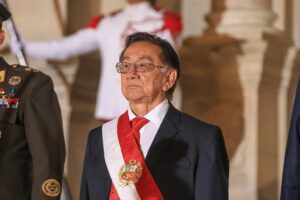
Published 05/04/2024 14:37 | Edited 04/05/2024 15:09
On Wednesday (3), the president of Venezuela, Nicolás Maduro, made serious accusations when he stated that the United States had installed “secret military bases” in Essequibo, a region disputed between Venezuela and Guyana, rich in oil. Amid these controversial statements, experts such as Pedro Silva Barros, researcher at Ipea and former director of economic affairs at the Union of South American Nations (Unasul), expressed concerns and highlighted the importance of regional integration to dissuade any extra-regional interference in America. southern.
Maduro claimed to have “proven information” about the presence of these secret bases, which were being used to prepare attacks against populations both in Venezuela and in regions in the south and east of the country. This complaint comes amid a long-running territorial dispute between Venezuela and Guyana, which intensified with the discovery of oil reserves in the area by ExxonMobil in 2015.

For Barros, “the presence of extra-regional interference in Guyana represents an imminent risk, which must be closely monitored by Brazil and other countries in the region”. “The deterrence of any interfering extra-regional presence in South America will be achieved through regional integration, including in defense, and through the association of our development with our neighbors; not by isolating any of them”, he said, about Brazil’s important role in this mediation process.
He specifically mentioned the importance of completely paving the road between Boa Vista and Georgetown, especially the section between Lethem, on the border with Brazil, and Linden, including the bridge over the Essequibo River. This infrastructure, according to him, would strengthen ties between countries in the region and contribute to security and stability in the area.
Barros also highlighted the importance of Unasur’s South American Defense Council, which, according to him, would be the most appropriate space to increase trust and transparency between countries in the region and resolve differences in a diplomatic and cooperative way. This body has been needed since Unasur was dismantled by far-right governments.
In the face of growing tensions and mutual accusations between Venezuela, Guyana and the United States, Pedro Silva Barros’ analyzes highlight the urgency of a unified regional approach to dealing with security and defense issues. Regional integration and cooperation between South American countries emerge as key elements to guarantee stability and sovereignty in the region.
Venezuela x Guiana
In response to the accusations, President Maduro promulgated an Organic Law for the Defense of Guyana Essequiba, reinforcing Venezuelan sovereignty over the territory in question. This move, however, raised additional concerns, especially after Guyana expressed its “grave concerns” about the violation of its sovereignty.
Given the growing tensions and mutual accusations between Venezuela, Guyana and the United States, the situation in the region remains delicate. The analysis of experts such as Pedro Silva Barros highlights the urgent need for dialogue and regional cooperation to avoid a worsening of the crisis and promote stability in South America.
Source: vermelho.org.br

